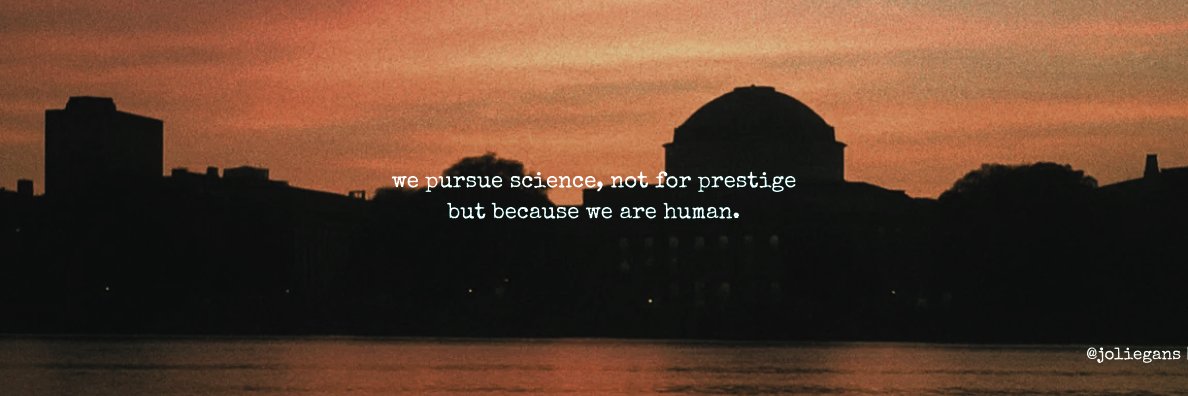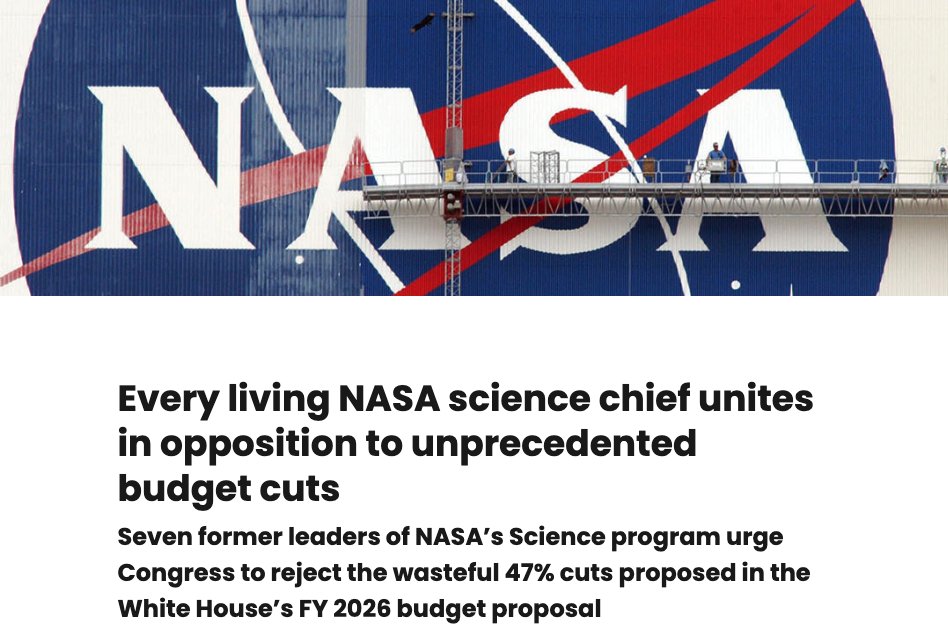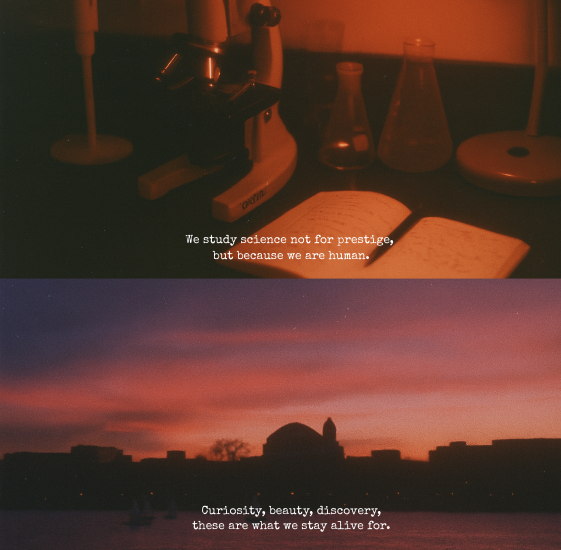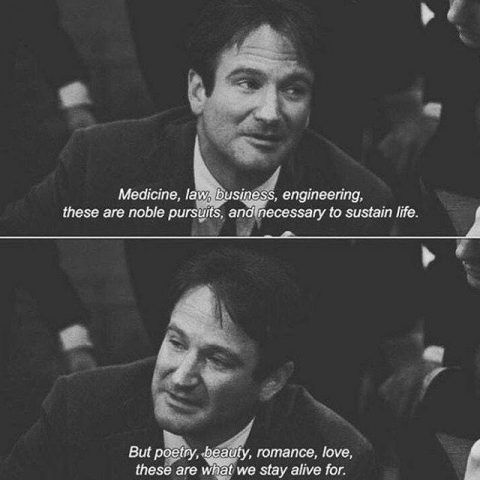
Jolie
@joliegans
Distressed scientist. Read more below | prev @mit, @uoft, @who, built/filmed some things
Announcing The Distressed Scientists Department - a living notebook to make research a playground again. And because knowledge is more than the PDF. I turned down a “safe” PhD this year when I internalized that grants truly do take longer than experiments and that 5 years in…
If you read about research/funding, what's more interesting: A) Deep dives on orgs that funded transformative research (Bell Labs, PARC) B) Case studies of transformative research - who backed them, where they ended up If you've written about either/both, would love to chat!
First signatures from the NIH, now NASA - the Avengers are assembling across a bunch of disciplines, what a time to be alive

To everyone asking if The Distressed Scientists Department is a Taylor Swift homage...it pains me that you haven't watched the Dead Poets Society, what a masterpiece of a film I will organize a watch party when we hit 10k


Little Ways The World Works If you find something that is true in more than one field, you’ve probably uncovered something particularly important. The more fields it shows up in, the more likely it is to be a fundamental driver of how the world works. collabfund.com/blog/little-wa…
Science publishing looks totally different if you’re targeting agents that don’t care about prestige or false simplicity
I often rant about how 99% of attention is about to be LLM attention instead of human attention. What does a research paper look like for an LLM instead of a human? It’s definitely not a pdf. There is huge space for an extremely valuable “research app” that figures this out.
screenshot from this blog — this is ridiculous
The conversations you're about to read (first reply) have never been shared publicly before. For 3 months, I've been collecting conversations from inside the research funding cuts. There are thousands of headlines, but they've become faceless. I hope this serves as a reminder…
Today, @NIH announced a new policy to cap how much publishers can charge NIH-supported scientists to make their work publicly accessible. This reflects our broader effort to restore public trust in public health by creating an open, honest, and transparent research atmosphere.…
